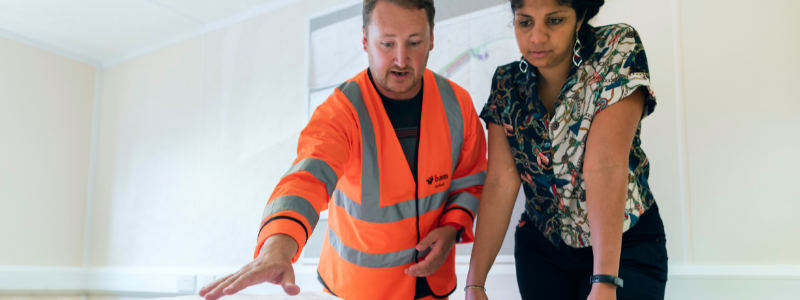
25 Oct Why We Need More Women in Construction
Look at any current construction site and there is still a distinct lack of women. We may be in 2022, but realising that construction isn’t just for men is taking longer than expected.
According to the UK’s Construction Industry Training Board (CITB), only 14.5% of construction workers are women. With a mere 2% of women working in skilled manual trades.
With a skills shortage still ravaging the construction sector, it will become even more crucial to encourage women into the sector and to make more firms realise there is an untapped pool of talent.
Data from Reuters reveals that the UK needs to take on 400,000 new people each year to build the new homes we need. Yet with an ageing workforce, and fewer young people choosing construction, the industry remains in deep need of those with relatable skills.
Unfortunately, there’s not just one thing that has deterred many women from joining the construction industry. From a lack of education, poor promotion of apprenticeship programs, to the gender pay gap, and boys club company cultures. There’s a lot of work to be done by firms and the industry if we are to change the tide on bringing more women into construction.
Maybe you’re still on the fence about bringing women into the workplace, even if you don’t want to say it out loud, or you’re unsure of where to start with attracting more women into your own company. This is why in this feature we want to share with you why it’s a now or never moment for embracing a team of gender equality and provide some advice on where you can start.
As CEO of the Chartered Institute of Building (CIOB), Caroline Gumble explains, “The issues need to be addressed. Increasing the number of women brings new ways of thinking and working, and expands the industry’s skills, insight and experience.”
Diversity of Ideas
What makes us different, makes us stronger – and that saying has never been more appropriate than when it comes to increasing the diversity we have within our workforce.
If we hire people who all have the same experience, same background, same education, we’re never going to get fresh ideas or innovations emerge.
A key skill in the construction industry is problem-solving, and if we have people all coming from the same worldview, we’re going to get very limited solutions.
Instead by diversifying our teams, we increase our capacity to problem-solve and innovate.
As Debbie Dickison, CEO of Crane Industries says, “diversity drives innovation.”
The more diversity of thought and experience, the stronger your team, and the stronger your business.
A Skills Shortage
According to the Open University Business Barometer, UK businesses spent £6.6 billion in 2020 to plug short-term gaps due to skills shortages.
The skills shortage in construction has been a growing concern for several years, but thanks to Brexit, and the impact of COVID, it is reaching almost desperate levels.
Many construction workers are beginning to reach the age of retirement, with 22% of the workforce over 50, and 15% in their 60s.
Alongside the fall of experienced workers, is the fact that the construction industry is losing out to competing sectors where work is more stable, and pay is more competitive, meaning younger workers entering the workforce are less inclined to choose a trade.
Now add in the fact that many EU workers have now left the UK due to Brexit, and you’ve got a skills shortage the UK hasn’t seen since world war two.
By widening the talent pool to attract more women, as an industry, the construction sector could quickly fill skills gaps, as well as uplevel in areas that it’s still lagging such as digital and tech adoption.
More than 100 years after women won the right to vote, which was in part due to women doing ‘men’s work’ during the first world war, women are again needed to support another urgent skills shortage.
How To Support Women Into Construction
If you want to be part of the change to get more women into construction, we’ve listed things you can do to make a start.
- Improve your company culture so it promotes inclusion and diversity. Ensure you have a workplace where women will feel comfortable and supported.
- Work with your recruitment agency to build recruitment campaigns that are not based on gender.
- Speak about construction work in local schools, colleges and universities on the topic of women in construction. Build the awareness that it’s not just a ‘man’s job’.
- Collaborate with other construction companies who have increased their gender diversity and gain insight from others.
- Provide mentorship to women who are eager to join the industry.



